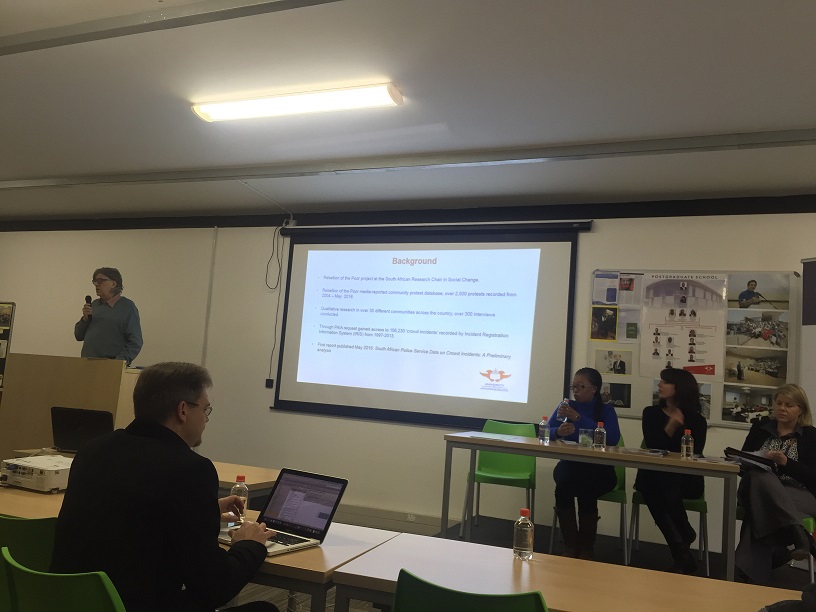|
15 June 2016
An Intern Reflects: Released Records Advances Activism
The Freedom of Information Programme (FOIP) at the South African History Archive (SAHA) often requests records on behalf of researchers but rarely gets to see first-hand its utilization in the academic space. In 2015, FOIP requested records through various Promotion of Access to Information 2000 (PAIA) requests regarding the South African Police Service’s (SAPS) Incident Registration Information System (IRIS) while working with researchers from the Social Change Research Unit at the University of Johannesburg.
SAHA was invited to the University of Johannesburg to attend the launch of a report: “Counting Police-Recorded Protests”, which based its analysis of protests in South Africa on the data sets SAHA obtained. SAHA has previously received intriguing data from SAPS but as the moderator, Peter Alexander mentioned at the event, “this is the largest amount of police data made available anywhere in the world”.

Often, it becomes easy for FOIP to slip into the habit of requesting records without acknowledging or realizing the full impact the information will have. SAHA tests and pushes the boundaries of access to information and thus, rarely has the opportunity to amply engage with the contents of records. As such, it was interesting to attend the launch of a report where FOIP had a fundamental role in as it became a reminder that FOIP’s work goes beyond the office and PAIA Tracker.
The 82 page report was a condensed and well analysed version of the information that was released and made available through PAIA. It is integral that different individuals from a myriad of backgrounds work together in order to produce helpful reports such as the one introduced at the event. Without the assistance of FOIP and the team’s hard work in obtaining the released records from SAPS, the report would not have been possible. The launch and many like it serves as motivation for SAHA to continue its work with civil society and researchers alike in order to utilize PAIA effectively. |





